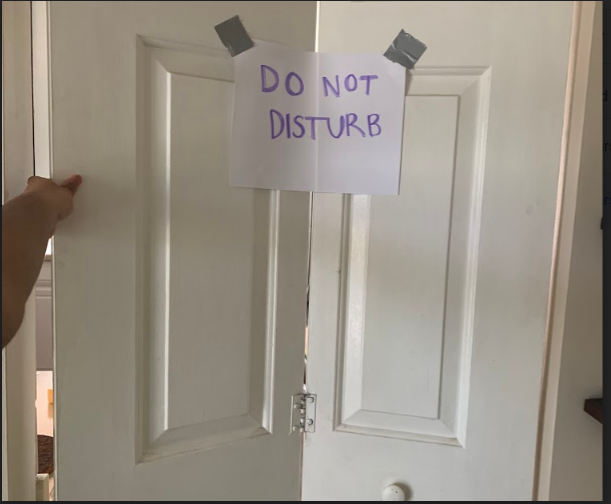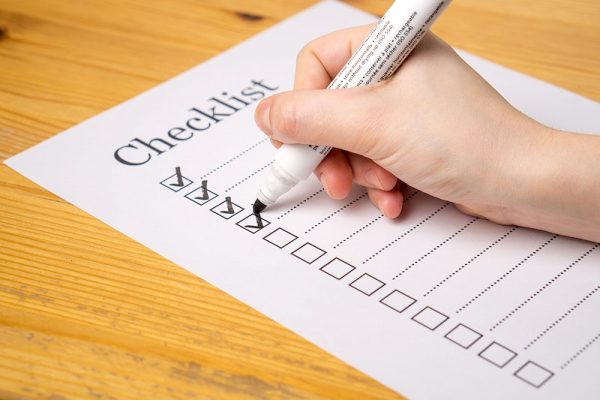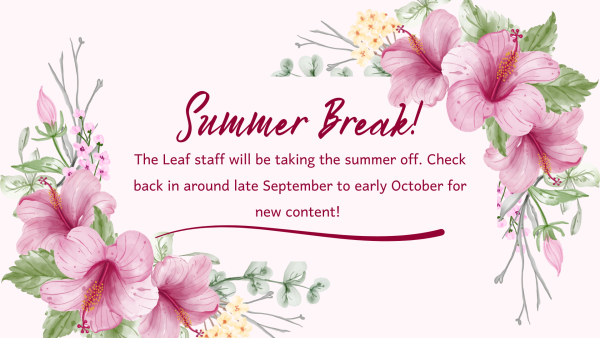What quarantine has taught me about setting boundaries
DO NOT DISTURB. COVID-19 has impacted all of us in different ways. It’s safe to say we are all feeling the mental burden of being quarantined in our homes. With our lives being flipped upside down, it’s important to set limits to protect your physical and mental wellbeing. Read to learn some tips that will help you set boundaries at home.
Setting boundaries is a new concept for me. I have heard it thrown around on social media a lot and disregarded the obscure notion. But, in quarantine, I have truly understood the need for such a practice in our daily lives. Essentially, boundaries are mental, physical, and emotional limits we put into place to protect our wellbeing. We all have personal needs that need to be met. Communicating those needs is essential to keeping ourselves healthy and safe. All of us are spending a lot of time with the same people and places. There’s no better time to practice recognizing and advocating for our needs. Here’s what I’ve learned about setting boundaries during the pandemic.
1. Say no, and don’t feel bad about it.
I have never successfully used this practice while school was open—ironically when I needed it the most—but have found this one word essential to preserving my mental energy. We all have unique sets of responsibilities during this unprecedented time. A lot of us are anxious, depressed, angry. There are some things I just know I can’t handle right now. And that’s okay. If it’s schoolwork, I make sure to communicate my concerns to my teacher. If it’s friends or family, I talk with them so they can understand why I can’t do or give as much as I usually do. Be honest with yourself about what you can contribute.
2. Set up dedicated physical spaces.
Our daily lives used to include variety. There was a novelty in walking from class to class with friends, grabbing food after school, and going to the library that just doesn’t exist anymore. To keep my days interesting and to stay engaged in tasks, I create a structure for myself that includes different spaces. If possible, dedicate an area specifically for schoolwork. Try to include an outdoor space that you can enjoy while social distancing. Watch movies in the basement instead of your room. This can help stimulate the progression of our days before the pandemic.
3. Set time limits on news consumption.
Everyone is experiencing different levels of panic at the moment. Living with hypochondriacs, the tension in my house around the pandemic is inevitably high. While it’s important to stay informed, the constant influx of information can be extremely exhausting. Soul-sucking. Depressing. I know that reading a lot of news during the days leaves me extremely anxious and unable to get through my day in a mindful way. So, I get quick updates once a day and go about my routine. Pick a certain amount of information that works for you.
4. Balance independence and reliance.
Humans are social creatures, but everybody is different in the extent. I feel more energized spending some time alone every day. But, spending time with my family is something that brings me joy. So, I make sure to include social interaction and rest into my day. A lot of us are missing our friends a lot and are keeping up with them through social media and Facetime. Along with that, it’s important to take some time to process our feelings and thoughts so the days don’t just pass by without notice. Journaling or meditation is a great way to feel centered.
5. Revaluate your expectations.
Often times, we are our own worst critics. It’s easy to give in to the pressure of hustle-culture now that we all have more time on our hands. Some of us might feel the compulsive need to be productive, which can result in guilt and shame if we don’t follow through. Letting go of self-imposed judgments and expectations has been eye-opening. We need to practice self-compassion more than ever as each of us is affected by this virus in different ways. Make this time what you are realistically able to make it. Don’t internalize societal pressures or the wants of people around you.
Your donation will support the student journalists of Sycamore High School. Your contribution will allow us to purchase equipment and cover our annual website hosting costs.










